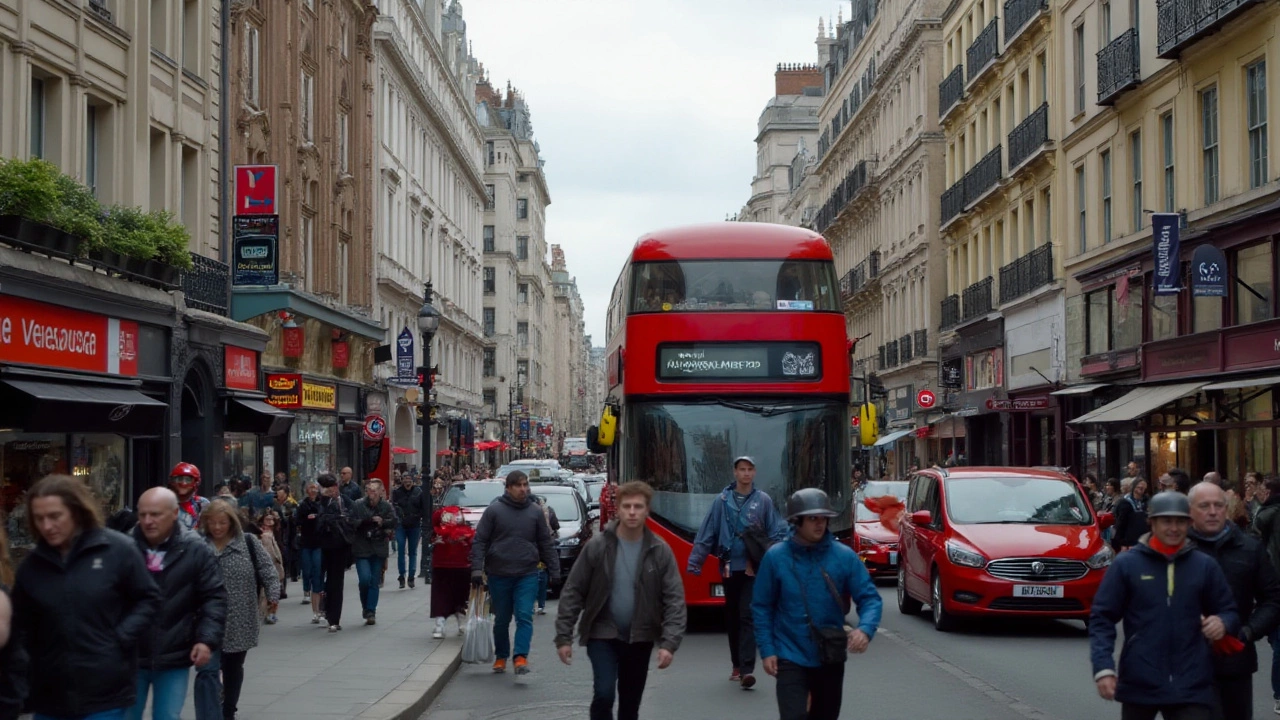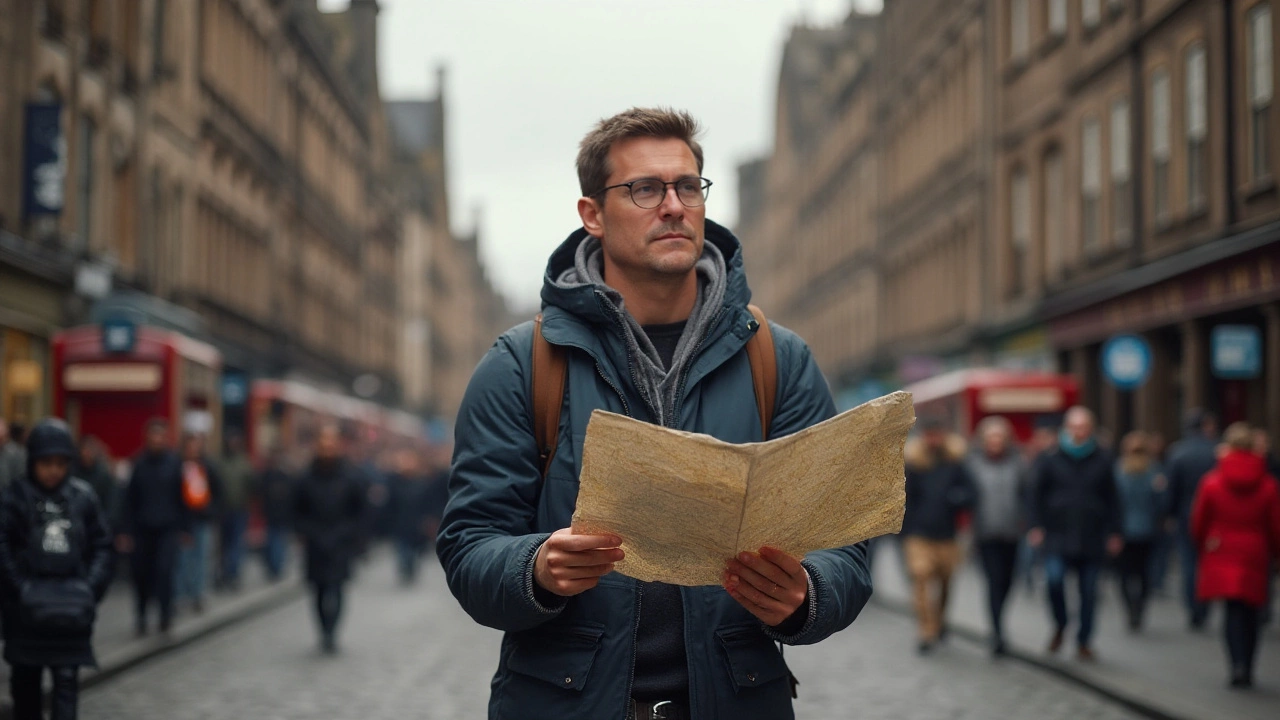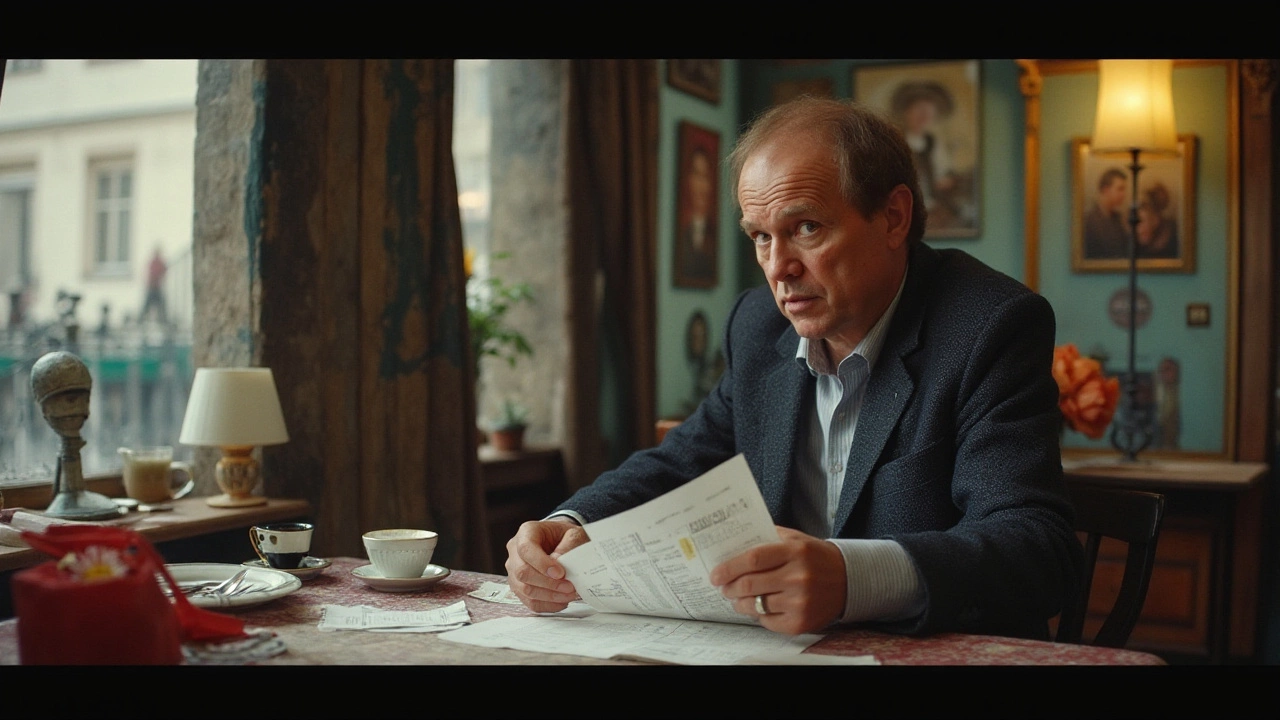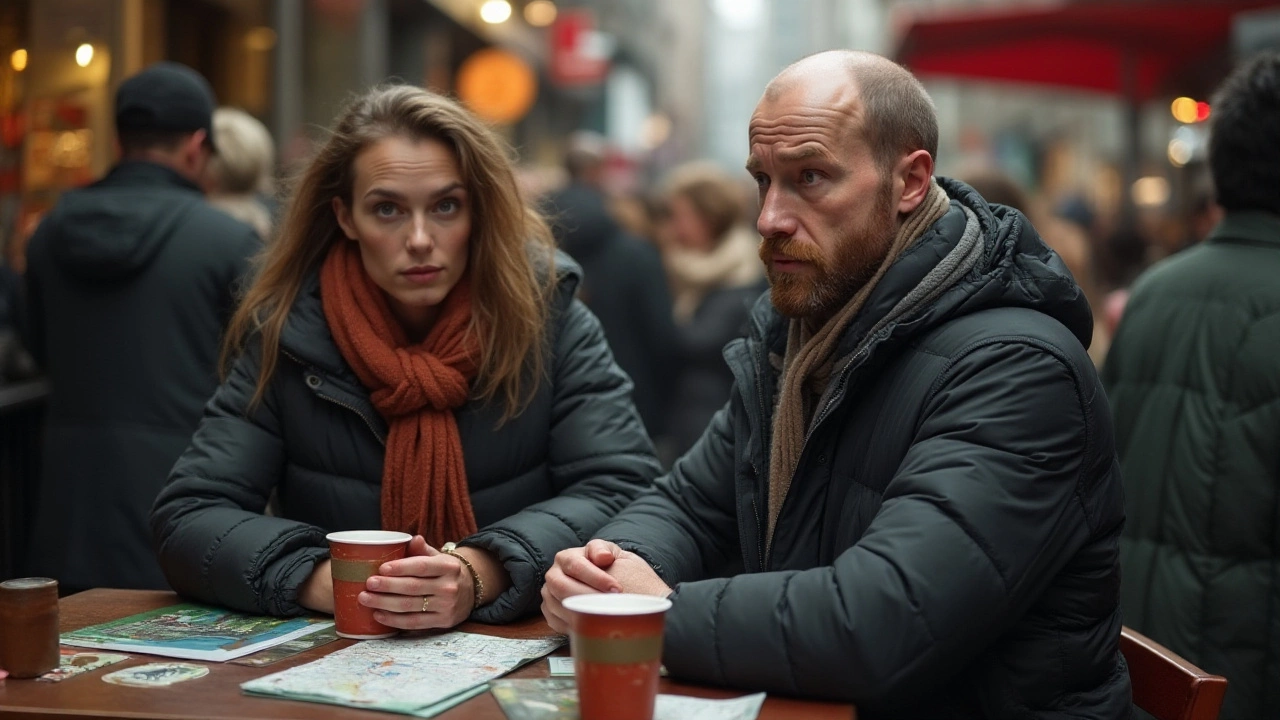Exploring the Downsides of Urban Escapes
 Oct, 15 2024
Oct, 15 2024
City breaks have become a popular choice for those looking to escape their daily routine, even if just for a weekend. These short trips promise a taste of urban life with cultural attractions, shopping, and vibrant nightlife. Yet, beneath their alluring appeal, city breaks can come with a set of disadvantages that are often overlooked.
Whether you're drawn to New York's skyline or Paris' romantic boulevards, city escapes can sometimes surprise travelers with unexpected challenges. From crowded landmarks to high costs, there's more to think about than just which landmarks to visit. A little planning can help in navigating these issues, ensuring that your short getaway doesn't turn into a source of stress.
- Hidden Costs of City Breaks
- Overcrowded Tourist Spots
- Limited Relaxation Opportunities
- Cultural Misunderstandings
Hidden Costs of City Breaks
When planning a spontaneous escape to a bustling metropolis, the excitement of city breaks often overshadows the many hidden expenses that can catch even seasoned travelers off guard. A trip to a city usually seems quick and budget-friendly at first glance, but once you add everything up, you'll be surprised at the price tag. Transport, meals, accommodation, and the little extras can add unexpected cost. In cities like London or Tokyo, just getting around could shrink your budget. Public transport, while efficient, comes with fares that can add up day by day. Then there's the temptation of taxis for a more convenient ride, doubling or tripling your commuting costs without notice.
Also, some of the city’s most famous attractions come with high entry fees. Picture a visit to the Louvre in Paris or a Broadway show in New York. The appeal of these experiences comes with a steep price, which you may not have anticipated. Dining out can be a wonderfully cultural experience, but with daily costs, your spending quickly spirals. A cozy dinner in a city's charming corner café might feel like a good escape, but at the end of a few days, dining expenses could equal your flight ticket! Experienced travelers often advise setting aside 20% more cash than the 'perfect trip' budget.
Accommodation prices often spike during weekends and holidays, which is when city breaks are most tempting. Opt for off-season travel if you're looking for more economical deals. However, budget accommodations can lead to another hidden cost: comfort and quality. Want an escape to wind down after exploring? It's probably not worth compromising on your hotel stay. As journalist Arthur Frommer wisely remarked,
"A haven provides not just a night's rest but a haven of sanity in the energetic glow of a city."When unexpected things happen, such as delays or cancellations, the costs can pile up quickly and make your city adventure harder.
These unforeseen costs underscore the importance of thorough planning. Consider what you want from the city. Can you take advantage of budget-friendly alternatives, like city passes for tourists or walking tours? After adding up what you’ll spend on attractions, food, and moving around, use that cash to research effectively. Urban travel rewards the detail-oriented explorer, providing some relief from those pesky hidden costs. Planning smart can help you refrain from being overwhelmed, allowing you to enjoy city vibes without worrying about going broke as a city breaks explorer.

Overcrowded Tourist Spots
When planning a quick city break, the allure of seeing iconic landmarks often tops the list. Cities like Rome, Paris, and Tokyo are home to world-famous attractions that draw millions of visitors each year. However, these bustling tourist spots can quickly turn an idyllic adventure into a crowded hustle. Imagine standing shoulder to shoulder with throngs of tourists, all vying for the perfect snapshot of the Eiffel Tower or the Colosseum. The vibrant energy of these cities can easily become overwhelming, leaving little room for the tranquility many travelers desire.
Take a stroll through Venice during peak season, and you'll find the experience less serene gondola ride and more crowded chaos. This charming city, with its narrow canals and picturesque bridges, struggles to balance the influx of tourists with its delicate infrastructure. Tourists may find themselves waiting hours in line for attractions or shuffling through congested streets where the magic of discovery is dimmed by the sheer volume of people. The city's beauty becomes harder to appreciate when navigated elbow to elbow, challenging the very essence of a peaceful retreat.
According to a report by the World Tourism Organization, the adverse effects of overtourism are increasingly apparent, impacting the quality of life for both visitors and residents. In a statement, a spokesperson from the organization mentioned,
"The struggle to accommodate large numbers of tourists puts a strain on local resources, cultures, and environments."These sentiments are echoed by travelers who often express disappointment after experiencing the adverse effects of overcrowding during their urban excursions.
To mitigate these issues, travelers might consider timing their visits during less busy seasons or exploring lesser-known gems within the city. Instead of heading straight for the obvious attractions, delving into neighborhoods or local spots can offer a more authentic experience without the constant jostle of large crowds. Visitors can enjoy a leisurely coffee at a quaint café, visit a hidden museum, or stroll through peaceful park pathways, allowing the charm of the city to unfold at its own pace.
Ultimately, understanding the potential for encountering overcrowded tourist spots can help travelers better prepare for their urban travel adventures. A well-researched itinerary that balances famous landmarks with quieter escapes can offer a richer, more rewarding experience. Embracing the road less traveled might just reveal the true heart of a city, beyond the bustling tourist shortcuts.

Limited Relaxation Opportunities
When it comes to city breaks, travelers often have this vivid image of leisurely strolls, sipping coffee at quaint street-side cafes, and absorbing the vibrant city life. Yet, seasoned travelers often find that city escapes can be anything but restful. The busy nature of urban hubs often means that these trips turn into a blur of activity, where one feels compelled to see and do as much as possible. This constant motion can leave little room for the relaxation that we so eagerly crave from our vacations.
Cities are known for their hustle and bustle, and many visitors unknowingly find themselves caught in this whirlwind. The endless options for sightseeing, dining, and shopping might seem exciting at first, but they can quickly become overwhelming. In particular, landmark attractions like museums, theaters, and famous streets often require extensive walking and a tight schedule to experience fully. The pressure to maximize time and optimize every single moment can lead to mental fatigue, detracting from the refreshing feeling many seek.
Another key factor contributing to the limited relaxation in cities is the crowd. Popular destinations see an influx of tourists, especially during peak seasons. Take Times Square in New York City or the Eiffel Tower in Paris, known for their constant streams of visitors. These crowded environments can create stress and make it challenging to find a moment of peace. While the sight of these attractions can be awe-inspiring, the surrounding noise and rush can exhaust even the most enthusiastic traveler.
Beyond crowds and schedules, urban areas often lack the tranquil nature settings that are synonymous with relaxation. Parks and gardens can be sparse, and finding a quiet spot in the city requires effort and sometimes money. Those seeking solitude might be disappointed, as finding a peaceful oasis within the urban sprawl can be akin to searching for a needle in a haystack. Some cities provide respite through spas and wellness centers, but these come with additional costs.
"Cities never sleep, and during city breaks, neither do you!" quipped travel expert Jane Nelson, capturing the essence of what city explorers often experience.
For those who find that relaxation means disconnecting and unwinding, planning is crucial. Incorporating small breaks within the itinerary, selecting accommodations that offer relaxation amenities, or choosing destinations with plenty of quiet spaces can help mitigate the lack of restful opportunities. Recognizing that a city break might not offer the complete relaxation that a countryside retreat could provide is essential. By setting realistic expectations and preparing accordingly, travelers can still enjoy their urban adventure without the need for a vacation from their vacation.

Cultural Misunderstandings
When embarking on a city break, one of the less considered yet impactful disadvantages can be cultural misunderstandings. As travelers immerse themselves in unfamiliar urban settings, they often encounter customs and social norms that differ significantly from what they know at home. This jarring contrast can lead to embarrassing situations, or worse, unintentional offenses. Understanding cultural etiquette becomes essential, but not every traveler is prepared. For instance, a seemingly harmless gesture in one country might be perceived as rude or inappropriate in another. Simple acts like tipping in restaurants, greeting strangers, or capturing a candid street photo can carry unintended meanings.
While English is widely spoken across many major cities, language barriers still pose a challenge, adding to the risk of misunderstandings. Consider the bustling markets of Marrakech or the historic backstreets of Tokyo, where English may give way to local dialects, leaving tourists grasping at translations. Language apps and guidebooks bridge the gap, but they seldom catch nuances in tone and context. This knowledge disparity can simplify everyday transactions into frustrating exchanges. Even something as straightforward as ordering a meal can turn complex if cultural idioms and local lingo are overlooked. A smile goes far, but sometimes it isn't enough to sweeten a lost-in-translation moment.
The concept of time is yet another cultural aspect that can bewilder travelers. Punctuality carries different weight in various destinations. For example, in some Mediterranean countries, a relaxed approach to time is customary, while in Japan, punctuality is a revered tradition. The difference can alter planned itineraries and create unexpected downtime, causing stress for those who like everything timed to the minute. To mitigate this, tourists should research cultural time conventions as part of their travel preparation. Flexibility and an open mind often lead to the most rewarding experiences when exploring new aspects of urban life.
"Traveling – it leaves you speechless, then turns you into a storyteller." - Ibn Battuta
Being unaware of local customs can also affect how one is perceived by locals. The urban travel experience can be deeply enriched by getting acquainted with cultural norms, yet sadly, many travelers miss this step. Taking a leisurely walk through an iconic city's streets or enjoying a local festival can provide insights into the social fabric that aren't apparent at first glance. This cultural immersion provides not only an authentic experience but also fosters mutual respect. Travelers are often pleasantly surprised at the warm reception they receive when making an effort to understand and respect local traditions, enhancing their journey significantly.
To avoid cultural faux pas, a few preparatory steps are recommended. Before departure, pull together some background on the city’s key customs and taboos. Some travel websites offer ample guidelines on etiquette, etiquette that can range from dining habits to appropriate attire. Engaging with local forums or social media groups can be a valuable resource, providing updated tips and personal stories. Whether set on discovering the historical landmarks of Rome or enjoying the vibrant nightlife of Bangkok, the keen traveler finds that mindful preparation minimizes social mishaps and enriches their overall experience.
